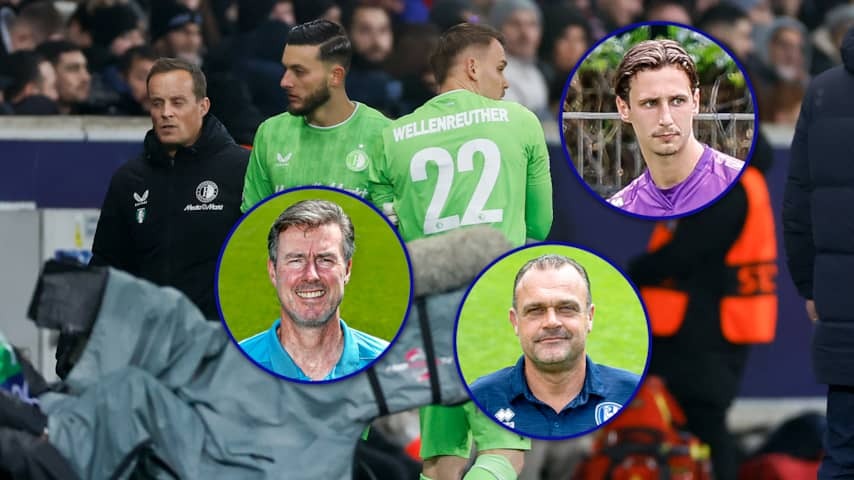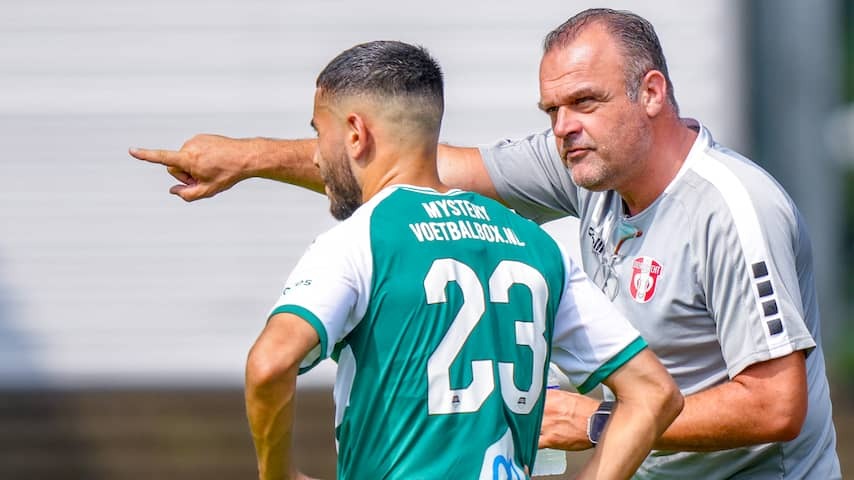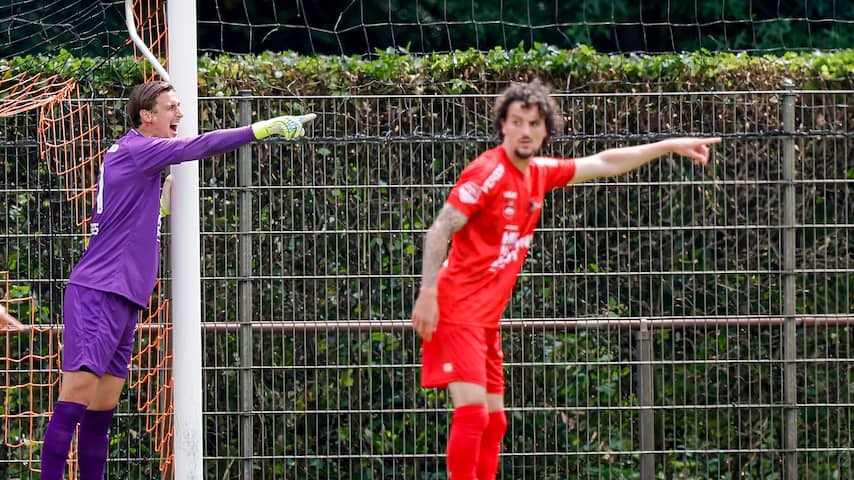
Not Justin Bijlow, but Timon Wellenreuther starts the season as Feyenoord’s first goalkeeper. According to coach Robin van Persie, Bijlow cannot yet play three games in a week. Is this just as intensive for goalkeepers as for field players?
In principle, Bijlow is the first choice in goal at Feyenoord. Yet Wellenreuther is preferred on Wednesday evening in the important Champions League double against Fenerbahçe. “At the moment I am looking for a goalkeeper who can play three games a week,” Van Persie recently explained, with a view to Feyenoord’s busy schedule.
“In my opinion, Justin is doing well, he is getting fitter and fitter. But at the moment he is training fit, not match fit to play three times a week.”
Is such an ‘English’ football week just as demanding for goalkeepers as for field players? Raymond Mulder, goalkeeper coach at FC Dordrecht, emphasizes that goalkeeping is much more intensive than it might seem.
“There is still an image of goalkeepers: they can never be tired after a match. But you see in measurements that their heart rate is super high for ninety minutes,” Mulder tells NU.nl. “If you also have to make a save, that peak moment is added on top of that. Then the battery is empty for a while.”

‘I’m often exhausted after a match’
Helmond Sport goalkeeper Hugo Wentges can confirm this. “It is quite intense, half an hour warming up and ninety minutes playing. I am often exhausted after a match, also mentally. Because you have to have full focus for ninety minutes,” he explains. “You are constantly busy with positioning and organizing the defense.”
Moreover, the role of a goalkeeper has changed dramatically in recent years. Mulder speaks, following Frans Hoek, about “goal players“. An eleventh field player, who is also comfortable with the ball at his feet. “Compared to ten years ago, much more is asked of a goalkeeper. Stopping balls remains the basis, but especially in possession that role is changing significantly.”
Wentges runs an average of between 5.5 and 6.5 kilometers during a match. A field player almost doubles that. But the number of kilometers covered does not tell the whole story about physical strain, says Egid Kiesouw, performance coach at Fortuna Sittard.
“A footballer can say: ‘We ran a lot today’. But that doesn’t mean you did well,” says Kiesouw, who previously worked for Feyenoord, PSV and the Dutch national team, among others. “It’s about making the right choices in peak load.”
And goalkeepers therefore have a different peak load than field players. “Many explosive movements and a lot of contact with the ground. If they fall on their shoulders or their whole body after a save, that has an impact,” says Kiesouw. “And you have to be able to deal with mental fatigue, focus on the next moment. If you make a mistake: do you dwell on it, or do you recover?”

Ice baths, recovery socks and oxygen tanks
In addition, a lot of time is spent recovering after the match, Wentges knows. “I usually can’t sleep straight away. The next day I’m really tired, rotten. That also has a physical effect, in terms of muscle pain, for example. Then I go onto the training field and it feels like I’m reacting half a second slower than normal.”
In the absolute top, where you usually have to play football every three days, the recovery process is extra important. Kiesouw noticed this last season, when he started working at Europa League winner Tottenham Hotspur.
Kiesouw: “Top players know what is expected of them. And they know that they have to play a tough game again in two or three days. Then you have to get to work. In addition to the club facilities, they sometimes also have all kinds of facilities at home. Ice baths, recovery socks, but also oxygen tanks. That is completely in now.”
“For goalkeepers, it is about a conditional basis to be able to recover properly. In addition, nutrition and sleep are extremely important. And sometimes it is better to let a player stay at home so that he can have a nice breakfast with his family.”
For most Dutch clubs, such a schedule with three matches a week is more of an exception than a rule. But Feyenoord does have a number of ‘English’ weeks ahead. For the time being with Wellenreuther in goal, but will that remain the case for the rest of the season?
“As an outsider, I look at Feyenoord, but I can imagine that they might now opt for a longer trajectory with Bijlow. So that he will soon be optimally fit and able to handle three matches a week,” says Mulder.
Goalkeeper coach Mulder believes that the idea that clubs have to play with the same goalkeeper throughout the season is outdated. “If the playing style requires a different type of right back to achieve a result, then we may also put him on. And so that should also be possible with goalkeepers, if the playing style requires it and you have multiple profiles in the goalkeeping team.”
“Of course, communication between the coach and the goalkeepers is also crucial in order to properly supervise these types of processes. It’s great to see that Van Persie dares to experiment with this.”